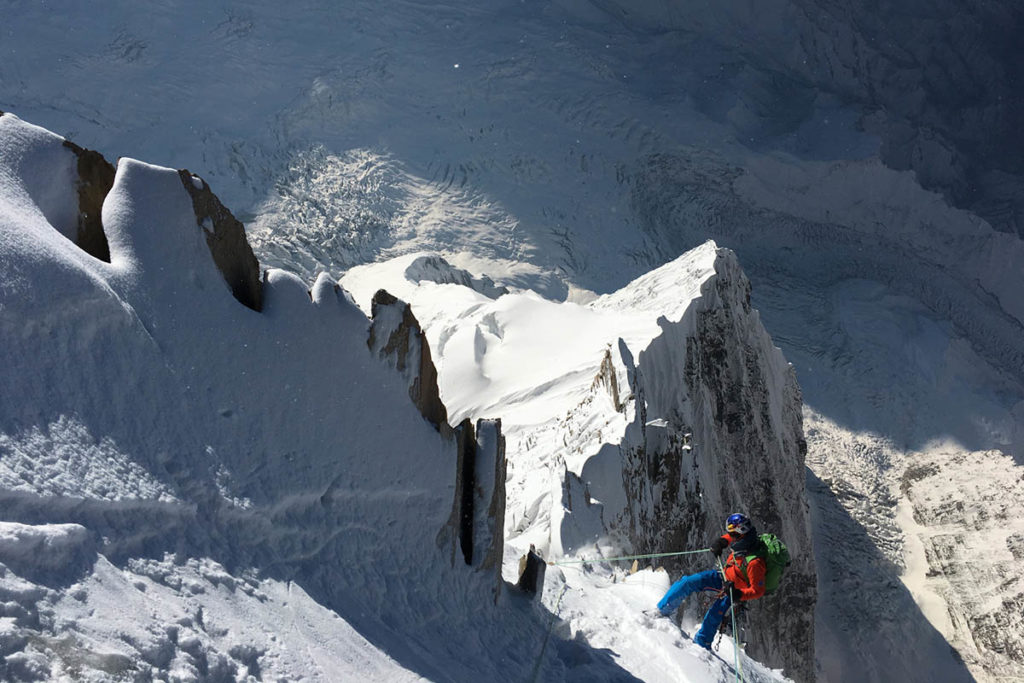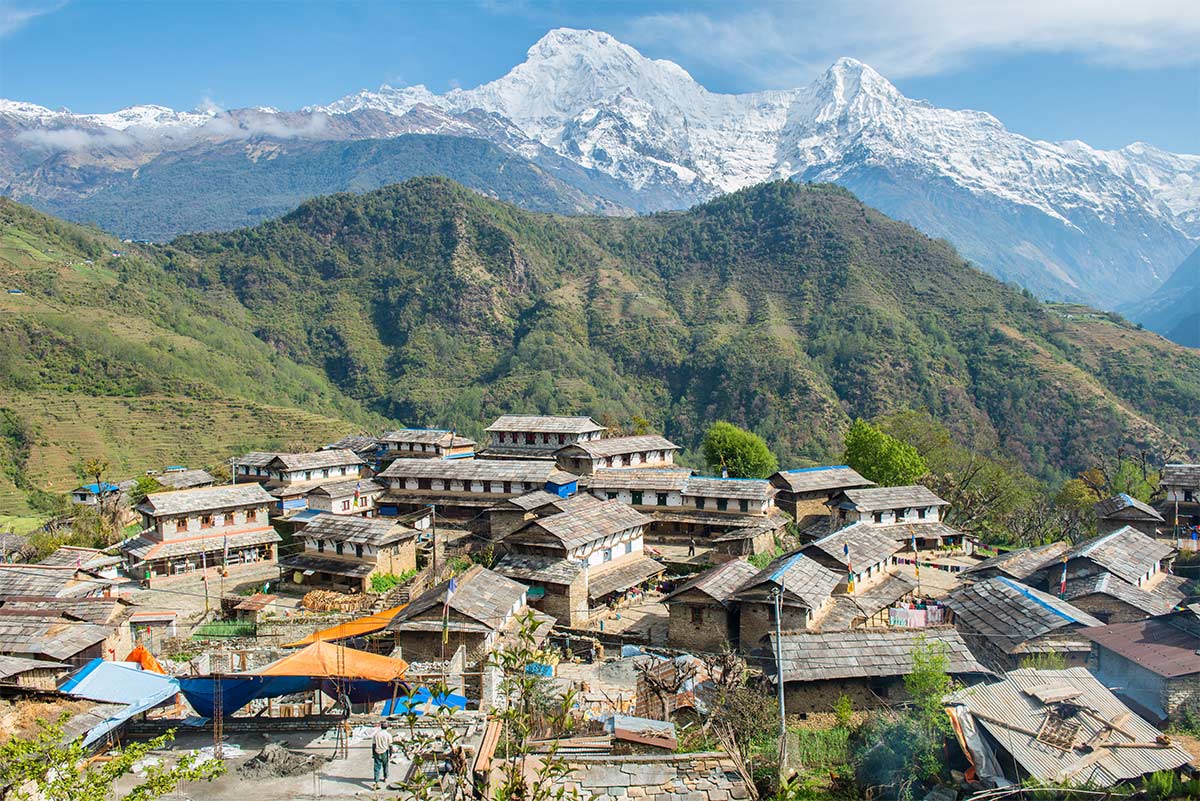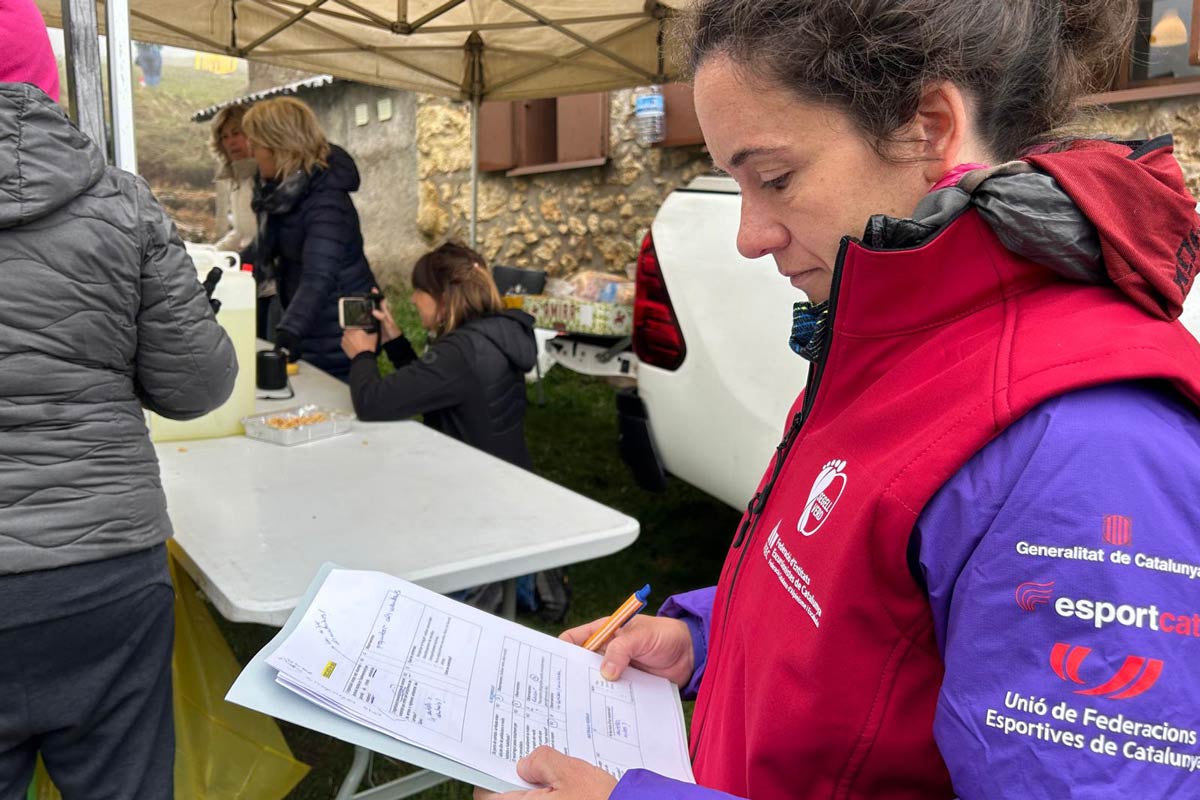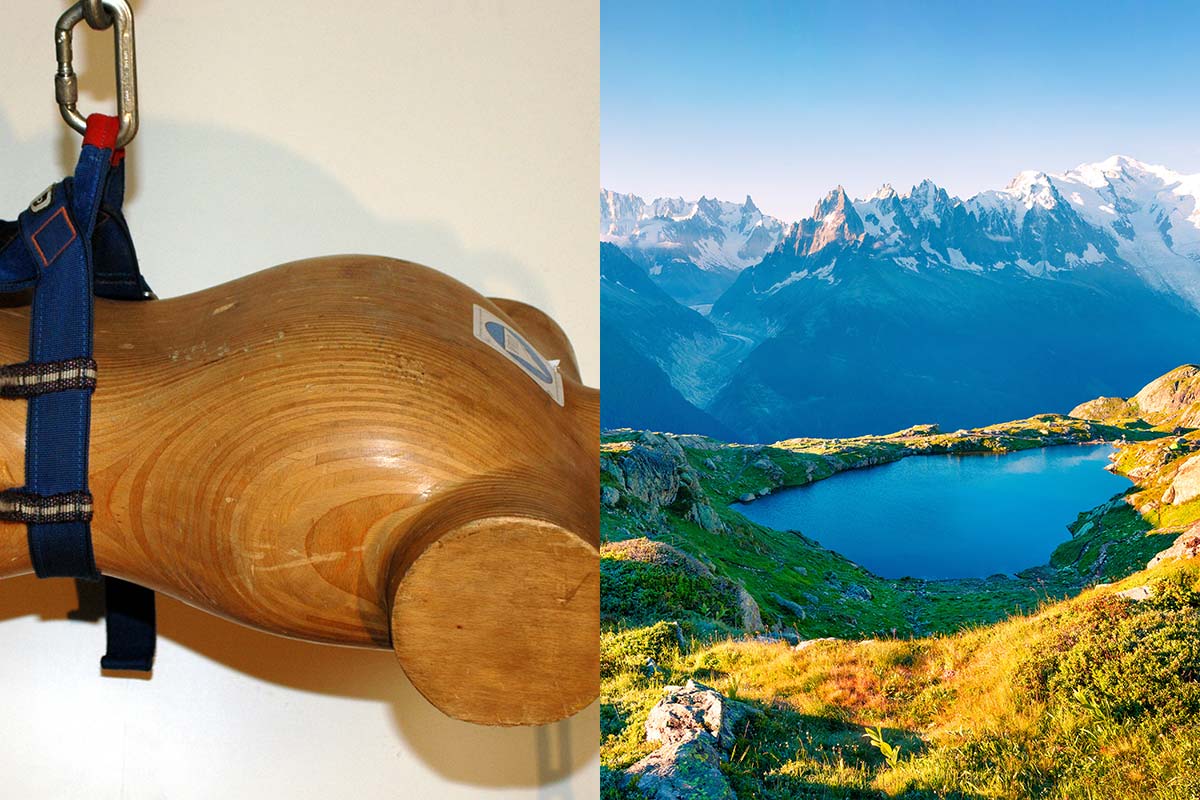OVERVIEW
The vision of the Plastic Waste Management in Annapurna Rural Municipality project is to assist in developing a circular economy around one of the world’s most difficult waste management challenges, plastic. Currently, only a small percentage of the world’s plastic is recycled each year, meaning large quantities of plastic end up in landfills, rivers, oceans, soils, and other locations that harm fragile ecosystems.
—
Vision, goals and objectives
In Nepal, tourism waste in high-altitude remote areas that are popular with trekking and mountaineering groups is putting a strain on the natural environment. While tourism brings with it many obvious benefits, it also generates huge amounts of solid waste that need to be collected, transported, treated, and disposed of.
As a result, the cycle of tourism may contribute to its own demise due to the underdeveloped nature of solid waste management (SWM) systems in mountain areas. While all settlements—whether mountainous or not—face SWM challenges, mountain areas tend to face additional ones.
These challenges are by virtue of their location, characterised by remoteness, topography, scattered settlements, sensitive and fragile ecosystems, lack of infrastructure and road networks, and poor institutional and financial capacity. This makes service provision in mountain areas all the more demanding compared to the plains. Ecologically sensitive areas, as well as mountainous regions, face some similar challenges when it comes to SWM.
During the peak tourist season, a study done by World Bank in 2018 found that the waste from Ghandruk village comprised 6% plastic bottles and 11% plastic bags. Plastic waste is a nuisance to the world currently. It does not decompose for a long time and reduces the aesthetic beauty of natural surroundings. The plastic waste in the mountainous area needs to be tackled with innovation and urgently.
Similarly, the mountainous areas of Nepal are susceptible to climate-induced disasters. The vulnerability of the people living in mountainous areas is high as was evident from the recent pandemic and loss of livelihood and income. Housing is a big factor that adds to this vulnerability and running water, especially in the winter seasons is a big challenge. During the winter seasons, especially, water freezes in the pipes causing pipes to burst and obstruct tap water.
We aim to solve the plastic problem as well as the pipe bursting problem with one single solution-
Insulating pipe wraps.
The Plastic Waste Management in Annapurna Rural Municipality project is a collaboration between Green Decisions Labs and Research, Clean Up Nepal, and the Waste for Warmth project, which is a consortium made up of Engineers Without Borders Norway, Field Ready, and the Polyfloss Factory.
The project will install a Polyfloss machine in Pokhara to process plastic waste from mountain villages in Annapurna into fine plastic fibers, known as “polyfloss” that has been tested and proven as a strong insulator (similar performance to the commercial option of Rockwool). The polyfloss will then be incorporated into a pipe insulator that will be installed on water pipes in the villages along with the Annapurna trekking and mountaineering routes.
The goals of the project are:
1. Promote a circular economy in Nepal, especially in the mountain communities along with the Annapurna trekking and mountaineering routes.
2. Assist in the development and strengthening of local plastic waste collection activities.
3. Improve the resilience of mountain communities’ infrastructure through the installation of insulation pipe coverings and other insulation products. The objectives of the project are to provide a decentralised option of plastic waste management to the mountainous communities of Annapurna rural municipalities that allow them to process their plastic waste into a new product that is needed locally.
The specific objectives are:
1. To process collected PET bottles (water bottles, soda, etc.) into polyfloss insulation (polyfloss is a term to refer to fine plastic fibers that are produced using the Polyfloss machine)
2. To process collected PP plastic packaging (bottle caps, food containers, etc.) into polyfloss insulation
3. To convert collected LLDPE (Polythin bags) into base sheets for polyfloss insulation
4. To manufacture polyfloss insulated pipe wraps that can be used by mountain communities for pipe insulation to prevent the bursting of water pipes during cold periods.

Expected implementation and outcomes
Expected Outcomes:
1. Reduce the bursting of water pipes during cold periods in the villages in the Annapurna rural municipalities.
2. Recycle one tonne of plastic waste (with this amount increasingly yearly as project and funding become more established)
3. Improve the resilience of water infrastructure in mountainous communities in the Annapurna region.
Key Tasks:
1. The Plastic Waste Management in Annapurna Rural Municipalities project will utilise a Polyfloss machine to process recycled plastic into a fine plastic fibre. – 1st Polyfloss machine in Nepal is currently in transit to Nepal which will be used to produce prototypes – December 2022
2. Transport and install Polyfloss machine and other machineries in Pokhara – February 2023
3. Refine the pipe insulation product – March 2023
4. Install pipe insulation homes in the Annapurna region – Winter 2022-2023, through Summer 2023
Activities:
1. Develop circular business model for pipe installation to ensure the development of circular economies around plastic waste.
2. Community outreach and education along trekking route- Oct-Dec 2022.
3. Identify families and businesses along the trekking and mountaineering route that are interested in water pipe insulation- Oct – Dec 2022.
4. Identify plastic waste recyclers or businesses for procurement of recycled plastic for processing using the Polyfloss machine- Oct 2022 – Feb 2023.
5. Conduct visits to Polyfloss machine in Pokhara with local municipal officers – Dec 2022.
6. Coordinate and collaborate with plastic waste recyclers to ensure appropriately sorted, cleaned and shredded plastic Oct 2022-Feb 2023.
7. Transport Polyfloss machine to Pokhara to process the plastic waste into fibres for insulation- February 2023.
8. Install water pipe insulation-Jul-Sep 2023. 9. Develop and implement monitoring and evaluation of installation effect on pipes- Oct-Dec 2023.
Climbing, mountaineering or outdoor sport focus
Rural communities located along the routes to Nepal’s famed mountains receive thousands of visitors each year.
This mountaineering and trekking tourism has brought many economic benefits to the communities and families within them, many of whom have created businesses that cater to these visitors; however, increased visitors also equate to increased plastic waste challenges that these communities are not equipped to deal with.
Visitors expect to visit places like the mountains of Nepal and see the pristine environment, however, with more and more visitors each year, more and more plastic piles up in these communities. Additionally, due to the effects of climate change, each year locations around the world experience extreme weather-related events, such as extreme cold events, extreme heat events, increased precipitation, stronger cyclones, etc.
Around the globe, communities large and small find they are not prepared for these events. When these events hit, not only are the communities vulnerable to the effects, but the tourism industry often suffers as well, impacting the livelihoods of families. It is well documented that Nepal too faces these events at an increasing rate.
The project seeks to increase the resilience of the rural communities along the trekking and mountaineering routes by insulating water pipes to better withstand increased severe cold events and empowering the communities to tackle their plastic waste challenges. This project first seeks to insulate pipes, however a variety of insulation products can be manufactured such as sleeping bags, blankets, jackets, vests, insulation panels.
Best practice in mountaineering and mountain-based sports for mountain protection
In Nepal, tourism waste in high-altitude remote areas that are popular with trekking and mountaineering groups is putting a strain on the natural environment. While tourism brings with it many obvious benefits, it also generates huge amounts of solid waste that need to be collected, transported, treated, and disposed of.
As a result, the cycle of tourism may contribute to its own demise due to the underdeveloped nature of solid waste management (SWM) systems in mountain areas. While all settlements —whether mountainous or not — face SWM challenges, mountain areas tend to face additional ones.
These challenges are by virtue of their location, characterised by remoteness, topography, scattered settlements, sensitive and fragile ecosystems, lack of infrastructure and road networks, and poor institutional and financial capacity. This makes service provision in mountain areas all the more demanding compared to the plains. Ecologically sensitive areas, as well as mountainous regions, face some similar challenges when it comes to SWM.
—
To discover more about the UIAA Mountain Protection Award please click here.



